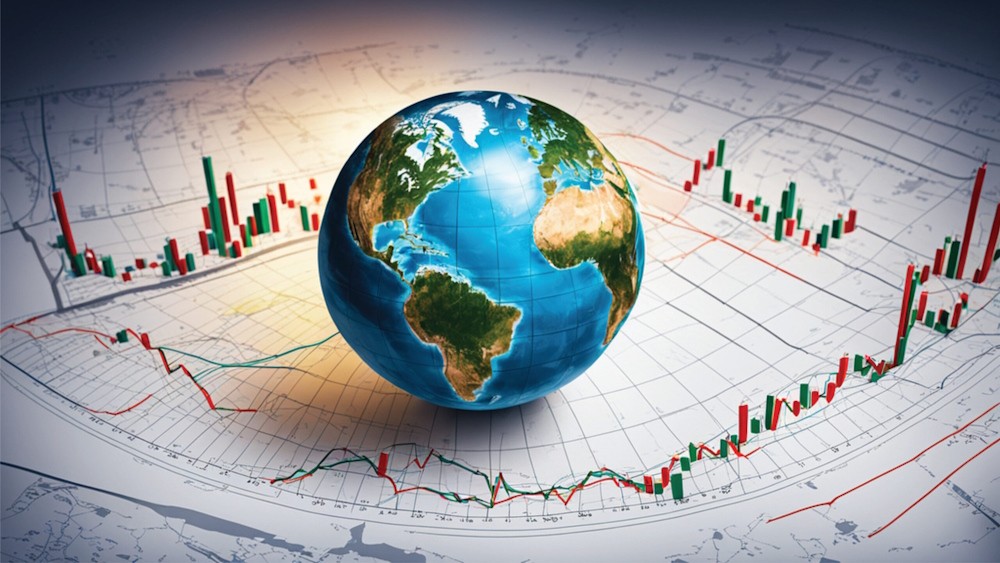
The stock market is inherently sensitive to global events, with Dow Jones futures often acting as an early indicator of market sentiment. Geopolitical developments, ranging from trade wars to international conflicts, can send ripples through financial markets, influencing investor confidence, capital flows, and overall market stability.
1. Trade Disputes and Economic Sanctions
One of the most direct ways geopolitical events influence Dow Jones futures is through trade policies. Tariffs, sanctions, and diplomatic tensions can disrupt global supply chains, increasing costs for corporations and reducing profit margins. For example, the ongoing tensions between the U.S. and China have led to volatility in the futures market, with investors pricing in the uncertainty of new trade policies. In extreme cases, these disputes can lead to large sell-offs as traders react to potential supply chain disruptions and corporate earnings downgrades.
Moreover, the long-term effects of trade disputes often reshape industries. When tariffs are imposed, companies seek alternative suppliers, leading to shifts in global production hubs. This, in turn, alters the performance of stock market sectors linked to international trade, such as manufacturing, retail, and technology.
2. Wars and Conflicts
Military conflicts or rising tensions in critical regions can significantly impact stock markets. Investors often react by shifting funds into safe-haven assets like gold or U.S. Treasury bonds, leading to declines in equity markets, including Dow futures. The market’s response to the Russia-Ukraine conflict is a prime example, where initial panic led to sharp market declines before stabilizing as investors adapted to the new geopolitical reality.
Conflicts can also impact specific industries. For instance, the defence sector often sees stock price surges during periods of geopolitical instability as governments increase military spending. Similarly, oil and gas stocks tend to be highly sensitive to war-related supply disruptions, with energy prices directly influencing broader market performance.
3. Political Elections and Policy Changes
Elections and policy shifts, particularly in economic powerhouses like the United States, Europe, and China, create waves in the market. Investors speculate on potential tax reforms, regulations, and fiscal policies that could affect corporate earnings and economic growth. Uncertainty leading to primary elections often increases volatility in Dow futures as traders attempt to position themselves ahead of expected policy changes.
The effects of elections are not always immediate but can be long-lasting. New administrations may impose economic policies that favour particular industries while restricting others. For example, increased government spending on infrastructure can boost construction and industrial stocks, while regulatory crackdowns on big tech can negatively impact that sector.
4. Currency Fluctuations and Interest Rate Decisions
Geopolitical instability can influence central bank policies, leading to interest rate shifts and currency fluctuations that directly impact the stock market. When global tensions rise, central banks may adjust monetary policy to stabilize their economies, affecting investor confidence and the valuation of stocks. For instance, the U.S. Federal Reserve’s rate hikes in response to global inflation concerns have repeatedly influenced Dow futures performance.
Currency fluctuations also play a crucial role in shaping investor sentiment. A weaker U.S. dollar can make American exports more attractive, boosting multinational corporations, while a stronger dollar can put downward pressure on corporate earnings. Investors closely monitor geopolitical risks that could trigger foreign exchange volatility, as currency movements can create both risks and opportunities in the stock market.
5. Industry-Specific Impacts: A Case Study from the Online Casino Market
While broader stock indices like the Dow Jones reflect general market sentiment, certain industries are uniquely affected by specific geopolitical shifts. The recent New Zealand online casino licensing cap is a case in point. Regulatory changes in global markets can impact investor sentiment toward the gambling and entertainment industry, influencing stocks linked to digital gaming and betting firms. The article discussing New Zealand’s online casino licensing cap shows that regulatory decisions can reshape entire industries, leading to adjustments in market expectations and potentially impacting investor behaviour in the broader financial landscape.
Beyond casinos, regulatory shifts profoundly affect cryptocurrency, pharmaceuticals, and renewable energy industries. When governments introduce new policies or restrictions, they can create investment opportunities or generate uncertainty that leads to sharp declines in stock prices.
Staying Ahead in Volatile Markets
For investors and traders, understanding the influence of geopolitical events on Dow Jones futures is crucial for risk management and strategic planning. By monitoring global developments, assessing potential economic ramifications, and diversifying investments, traders can better navigate the volatility caused by political and economic uncertainties. As history has shown, while geopolitical risks can disrupt markets in the short term, they also present opportunities for well-informed investors to capitalize on market movements.
The key to staying ahead is vigilance and adaptability. Traders can make informed decisions that mitigate risks and maximize gains by using technical analysis, keeping a close eye on policy changes, and understanding how specific industries react to geopolitical shifts. As the world continues to evolve, so will the market forces driving Dow Jones futures, making continuous learning and strategic flexibility more important than ever.
